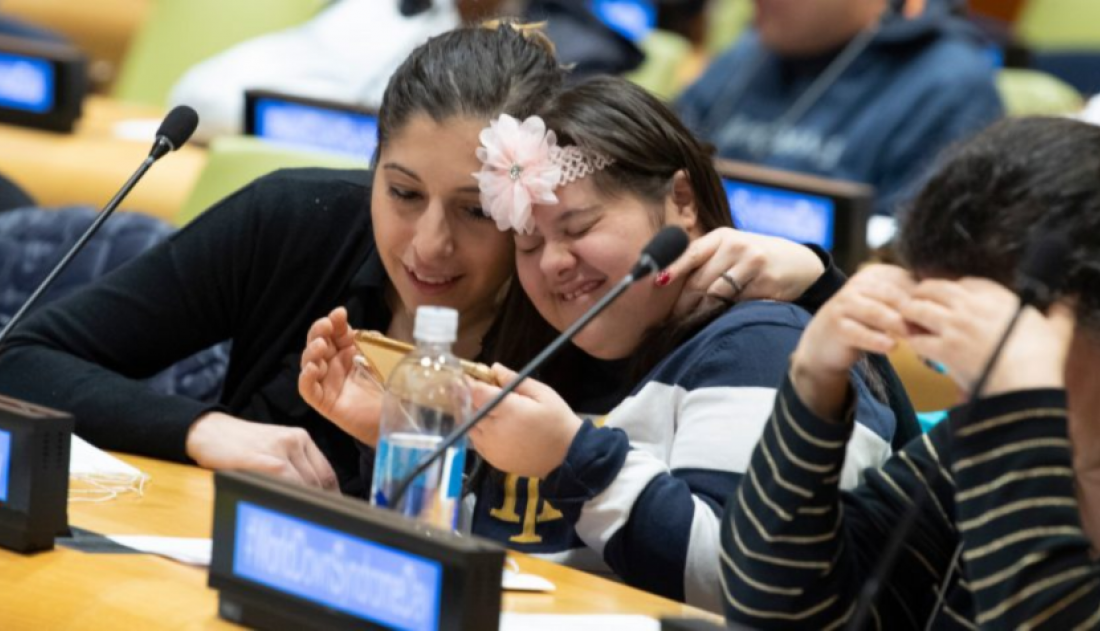
Down syndrome occurs when an individual has an extra partial (or whole) copy of chromosome 21. It is not yet know why this syndrome occurs, but Down syndrome has always been a part of the human condition. It exists in all regions across the globe and commonly results in variable effects on learning styles, physical characteristics and health.
Adequate access to health care, to early intervention programmes, and to inclusive education, as well as appropriate research, are vital to the growth and development of the individual.
In December 2011, the General Assembly declared 21 March as World Down Syndrome Day (A/RES/66/149). The General Assembly decided, with effect from 2012, to observe World Down Syndrome Day on 21 March each year. In order to raise public awareness of Down syndrome, the General Assembly invites all Member States, relevant organizations of the United Nations system and other international organizations, as well as civil society, including non-governmental organizations and the private sector, to observe World Down Syndrome Day in an appropriate manner.
What is Down syndrome?
Down syndrome (or Trisomy 21) is a naturally occurring chromosomal arrangement that has always been a part of the human condition.
The best people to answer many questions about Down syndrome are people with Down syndrome, so over to them…
What does inclusion mean?
#InclusionMeans
#WorldDownSyndromeDay
Together we can empower people around the world to advocate for full inclusion in society for people with Down syndrome and for everyone.
For more Information, please visit:
 Welcome to the United Nations
Welcome to the United Nations


